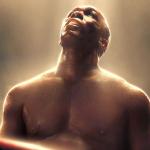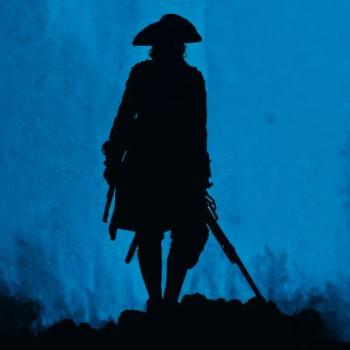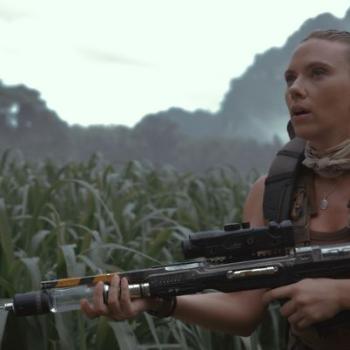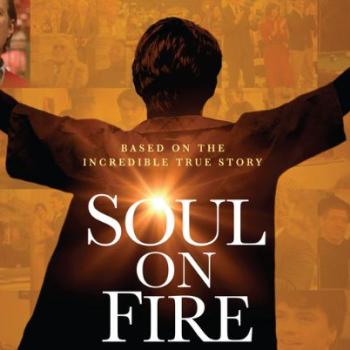In 2011, renowned father-son filmmakers and actors Emilio Estevez and Martin Sheen united for an epic spiritual journey, “The Way.” Centering on a grieving father’s quest to discover the heart of his son on the Camino de Santiago pilgrimage, the film gained a legion of fans deeply moved by themes of faith and family. On May 16, a re-release of the film will hit 1,000 theaters as part of a Fathom Events presentation, giving audiences another chance to experience the journey as well as a historic moment in cinematic history.
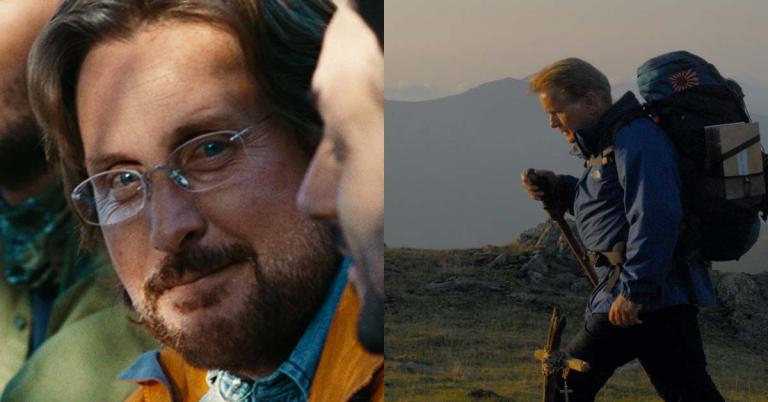
According to Estevez, Sheen, born Ramón Gerard Estevez, began his acting journey with his arrival in New York in 1958, but chose to assume a stage name after experiencing challenges in getting jobs. Although he was quickly embraced by audiences as Martin Sheen, in films such as “Apocalypse Now” and “The Departed” and the hit television series “The West Wing,” the name initially was met with sadness from his father.
“His father came to see him on Broadway,” Estevez said. “And his dad, Francisco, who is a very shy, Spanish man from Galicia—not far from Santiago de Compostela—looks up at the marquee, and he saw ‘Martin Sheen’ on it and he shook his head. My dad was so ashamed that he hadn’t honored the family name.”
To honor both his father and his grandfather, Estevez credited Sheen, who serves as a producer, for the very first time in film as Ramón Gerard Estevez.
“He’s never seen his name up on the silver screen,” Estevez said. “So, in this movie, my dad gets to see his name, his real name on screen, and then I dedicate the movie to my grandfather Francisco at the very end.”
Nearing the May 16 re-release, Estevez gave an exclusive interview with DeWayne Hamby of Reel Faith, discussing the making of the film, working with his father, and whether or not he considers “The Way” a faith-based film.
The movie is special in many ways, but I just love the father-son dynamic. Typically, in a movie like this, it’s a son piecing together his relationship with his father, and this time it is reversed. I think that’s very unique. You want to talk a little bit about it re-releasing.
When it was originally released in 2011, people were really taken aback by the film, because it wasn’t sentimental. Yes, it’s faith driven. Yes, it’s faith based. But it wasn’t your typical faith-based movie because our lead character, Tom, played by Martin Sheen, my Pop, is an unbeliever. He’s fallen away from his faith. He’s kind of you know, betwixt and between. He’s an Easter and a Christmas Catholic in the movie. So he’s really kind of leaned into the finer things in life, the golf, the country club, the golf course buddies, his fellow doctors. He lives a very kind of cozy isolated West Coast life. And now, he finds out that his son has—and this is not a spoiler—died on the Camino de Santiago, which is in the opening moments of the film. He doesn’t even know where that is. He can’t even fathom pilgrimage. So, he goes to Spain with the intention of bringing his son’s remains back to the United States for burial and instead has that moment of inspiration and says, “I’m going to cremate the body. I’m going to take my son on this journey with me, and we’re going to do this together.” But what he doesn’t understand is that he’s not doing it to really honor the son. That may have been his original intention. But he does it and finds himself, finds his faith, reconnects to community, reconnects to all the things that he’s so fallen away from, and becomes a whole person, becomes a citizen of the world. And I think that journey is so important because what happens on it is that while he was never able to do, to meet the son even halfway to understand his life. He now has to make a full journey 500 miles to finally meet the son, and finally figure out what the heck he was doing out there in the world, wanting to be this world traveler and walking away from his PhD program at Berkeley. And he understands him. It’s too late to reconcile with the son, but he becomes whole. And he becomes, like I said, a citizen of the world.
This is one of many movies you’ve done, but there has to be something special about it as when you look back at it. It just hit people different. There are a lot of good movies, but there’s some movies that stay with you. Can you talk a little bit about the response that you’ve gotten through the years that that would even make you say, “Let’s put it back out again?”
Well, sure. I mean, initially, it like I said, we got a very limited release in 2011. But when it started streaming, and when the DVDs started coming out, people were like, “Oh, gosh, you know, I gotta’ buy 10 copies of this.” Some people would buy 50 copies, and then give them out as gifts. The response was unbelievable. People were saying, “You’ve changed my life. This movie has had such an impact on me that I’ve now booked my flight to Spain. I’m going on pilgrimage. I’m going to Camino. Thank you for making this film.” And then the film started to become unavailable. It was taken off the streaming services. The DVD was kind of dried up. You couldn’t get any new copies. They stopped printing them. And lo and behold, we discovered that the movies was in movie jail. It had gotten wrapped up in this lawsuit and a bankruptcy issue. Then there was a motion to abandon rights in a Delaware courtroom. We rescued it. Chris Bueno, who runs a boutique distribution company called Ocean Avenue, called, and said, “Hey, we just had the same luck getting Seven Days in Utopia re-released and we’d like to try to help you get this back out there.” Enter Fathom Events, Fathom said, “Oh, man, we realize that people can’t find this movie. We believe that there’s an audience out there to get this back in theaters. So, we’re doing that.” And we’re out in almost 1,000 theaters nationwide now, which is just kind of mind blowing. And, you know, you go online now and you type in your zip code. And we’re, you know, 20 theaters in in and around Cincinnati and 50 theaters in and around where my folks live, in California. We never had this release when we first came out. So, I’m thrilled. I’m thrilled.
My dad loves this movie, not because just because he’s the star and not because I directed it, but he’s so proud on so many different levels. Number one, he had to change his name in 1958, when he came to New York as an actor. So, his real name is Ramón Gerard Estevez, and he’s never seen his name up on the silver screen. He is a producer on this, and I thought, “Wouldn’t it be cool to call him by his real name, Ramón Gerard Estevez?” You see that on the screen as an executive producer. He was raised in Dayton, Ohio, not far from where I’m at right now. And when he came to New York to become an actor, and did change his name, his father came to see him on Broadway. And his dad is a very shy, Spanish man from Galicia, not far from Santiago de Compostela, looks up at the marquee. And he saw ‘Martin Sheen,’ and he shook his head. And my dad was so ashamed that he hadn’t honored the family name. So, in this movie, my dad get to see his name, his real name on screen. And then I dedicate the movie to my grandfather, Francisco, at the very end. And then the movie was really inspired by my son, who moved to Spain in 2003, met a girl on the Camino, married her in 2009, which is the year that we started shooting. So, it really is four generations to bring this movie to the screen.
That’s awesome. And you know, you look more like your father every day.
It is a strong gene pool, and there’s no avoiding it. There’s no hiding.
At what point did you decide when you were putting this movie together that your dad would sign on to it, and that this was a project you would do together? It’s a movie about fatherhood.
It is and I think that that’s really what we leaned into when we were developing the script, and my dad and I would go on these long drives, and he’d come up with this idea. And he’d say, “What if the backpack falls in the river and I’ll swim after it?” I’m thinking, “Okay, well, you know, there’s going to have to be a safety crew there, you’re gonna’ have to get wet.” I mean, he’s not an action guy. He’s not an action star. But he was coming up with all these action ideas, which are fine ideas, but you’ve got to make sure that you’ve got the budget to be able to capture those on film. And there’s a certain amount of peril to that. I think this is, to your point, this is a father son story, told in a very, very different way. And it is an actor’s piece, because we see, you know, Martin, I believe, is one of the great national treasures of American thespians. He’s just out there doing such great and fine work and has for the last 60 years. But he’s very proud of this movie. And he should be because of his subtleties, the quiet moments that we spend with him out on the Camino. There’s not a whole lot of actors that that hold your attention within the quietude. And he is one of them. You sort of lean in. You don’t say, “What is he doing now?” You want to know what’s going on with all that. And that comes with age with, he has a gravitas about him. There’s all that going on with this character of Tom that he plays that forces you to want to know more.
Outside of this film, what is your favorite performance of your father’s?
Probably “Apocalypse Now.” I mean, that’s just such a monumental film and continues to stand the test of time and that, and it’s a classic, for so many reasons, not the least of which is the fact that it actually got made under all of those extraordinary circumstances. But the fact that it is a towering achievement in cinema. And as you know, it’s a watch him going through his paces, and watch him on this journey to find Kurtz is not dissimilar to the journey on “The Way” and not too dissimilar his journey on the Camino de Santiago. I think some of the great movies of our time, our journeys, we all owe a debt of gratitude to “The Odyssey.”
I think another thing that will benefit this re-release is that 10-11 years ago, faith films were a little less diverse. In the past decade, we’ve seen them evolve, and we’ve evolved, to include so many deeper themes and content. So, I think there’s a chance the film will be more embraced by those audiences.
I think so, too. I mean, I think 11 years, 12 years ago, people thought there were some things in the movie that were objectionable. But I think, again, we’ve evolved. We have gotten more progressive in sort of how we look at the world. And certainly, the movie benefits from that, to your point, I think that we are looking at this movie now through a different lens, that it is not specifically a Catholic movie, it is not specifically a Christian movie, and yet, it’s both. It lives in the secular and the non-secular world, comfortably, and that is kind of a feat these days, to be able to land in both in both worlds and be genuine about both. Because I think, you know, Hollywood has a tendency to say, “You know, that’s what’s hot. We got to we got to cash in on what’s going on over there. We got to tuck into the faith-based films.” But faith-based audiences, they know when they’re being fed a load, and if the filmmaker’s heart isn’t genuine. It’s just about just the nature of, of just how we how we sort of interact. You know, when it’s just another Hollywood shill coming at you and saying, “I’ve made this faith based movie.” It’s like, “No, you didn’t. You’re just in it for the dough.” Our movie has always been genuine, from the moment we started. In fact, I had to talk Martin away from it being a devoutly Catholic movie because I thought with our audience, our tent has to be bigger. And the only way you get more people into that tent is to build a bigger tent. So, we did.
I have a daughter who’s 13. Frequently when I interview people, I have to kind of explain who they are. Even a career like yours, she may not know. But when I said your name, she said “Wasn’t he in ‘The Outsiders’?” She and her friends are all about that right now. She was pretty excited to hear I was talking to you.
What is her name? Tell Natalie “Two-Bit” says hello. And I imagine that you’re reading “The Outsiders” in school right now, as part of a required reading. It’s not the part I wanted, I auditioned more for Soda Pop. But I got I got Two-Bit. So “Hi, Natalie.”
Do you have a memory from that filming? I know it’s a long time ago, and you’re very young, but does anything stand out to you?
Well, the fact that you know, this was only five years after “Apocalypse Now.” And there I am on the set with Francis Ford Coppola, doing a movie with him. That was, that alone, in and of itself, was surreal. The fact that I would ultimately get cast in one of his films, this master of cinema, the director of The Godfather. But the audition process was insane. Trying to get a part in that movie, the competition was very stiff. And all of us felt like we had just won some kind of prize by being by being a part of that. We shot in Tulsa, Oklahoma, of course, which the year before “The Outsiders,” I’d been there on “Tex,” which was yet another S.E. Hinton novel. So, I was familiar with Tulsa and I was familiar with Hinton. It was just a blessing to not only go back to work with Hinton again, but now be cast in a Coppola film. It’s kind of a dream of every young actor.
One more question. I’ve had a few songs going through my mind getting ready for this interview, theme songs of your movies. One day, I’m thinking “Don’t You (Forget About Me)” and the next day, “Blaze of Glory.” Then it’s “St Elmo’s Fire.” Which one of those hits you the most?
Well, I would say “Blaze Of Glory.” If people were to stop me in the street, there’s two movies that they want to talk about, “The Mighty Ducks,” and “Young Guns.” And then of course, “The Way.” What’s so weird too, is sometimes I’ll see someone coming at me and I’m gonna’ say, “Hey, man, I love your movie.” And I just assume it’s going to be younger and something up and they go, ‘I love “The Way”.’ I’m thinking, “I wouldn’t have pegged you for ‘The Way,’ but thank you very much.” But yeah, “Young Guns,” “Blaze of Glory.” I still have that piece of paper that Jon Bon Jovi wrote that song on. He framed it and gave it to me. Contrary to what Kiefer Sutherland wants to say about how it was written and how he was sitting at the table, it didn’t happen that way, Keifer!
It’s an honor to talk to you. Thanks for the years of entertainment and for releasing this movie. I think it’s going to snowball and be bigger than you ever thought. That will be a quite a story to say 12 years after release that it’s hitting at a different level.
Thank you. Well, your lips to God’s ears and I hope that I hope that comes to pass. Thank you so much. I really, really appreciate that. So we’ll see you in the theaters May 16, Tuesday night, for the release of the “The Way. “Man, it’s just such a such a blessing.
“The Way,” directed by Emilio Estevez and starring Martin Sheen, will release in a special one-night only Fathom Events presentation on May 16. For more information to find a participating theater, click here. Watch below for a video of the interview with Emilio Estevez and DeWayne Hamby with additional content.



